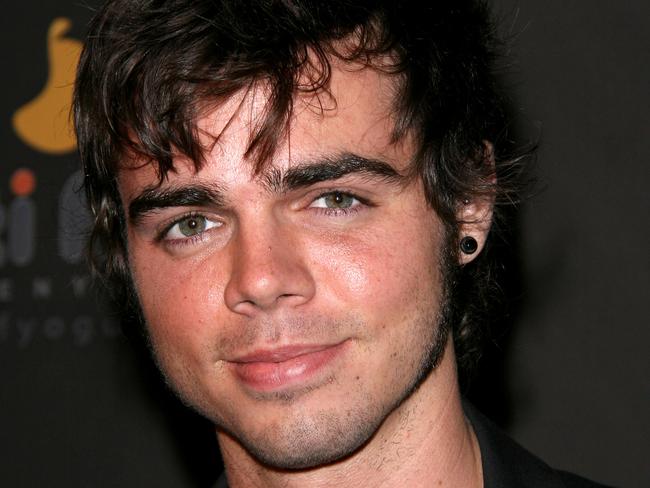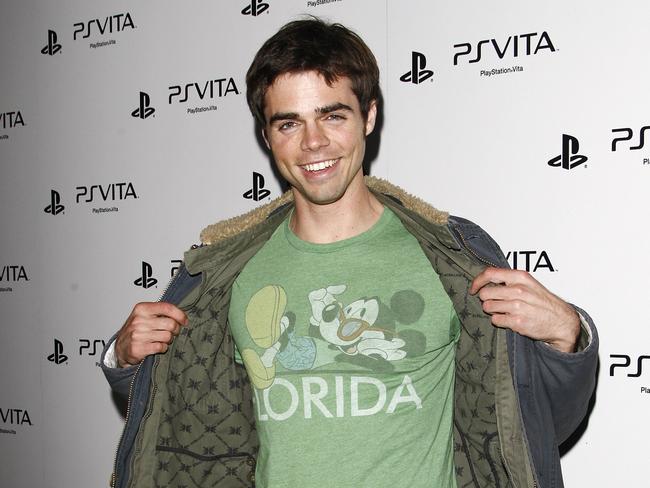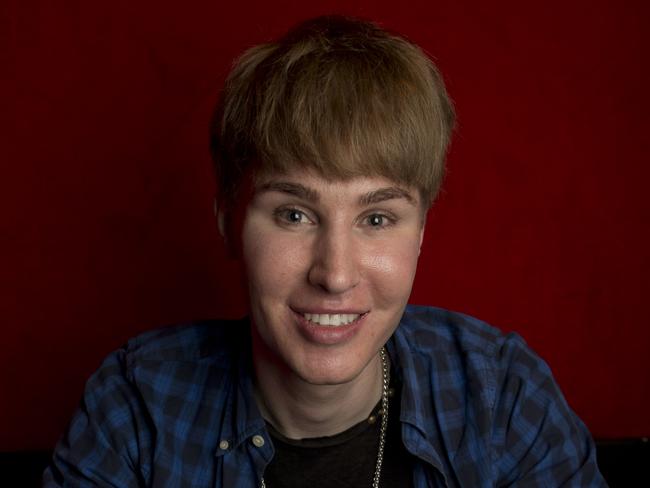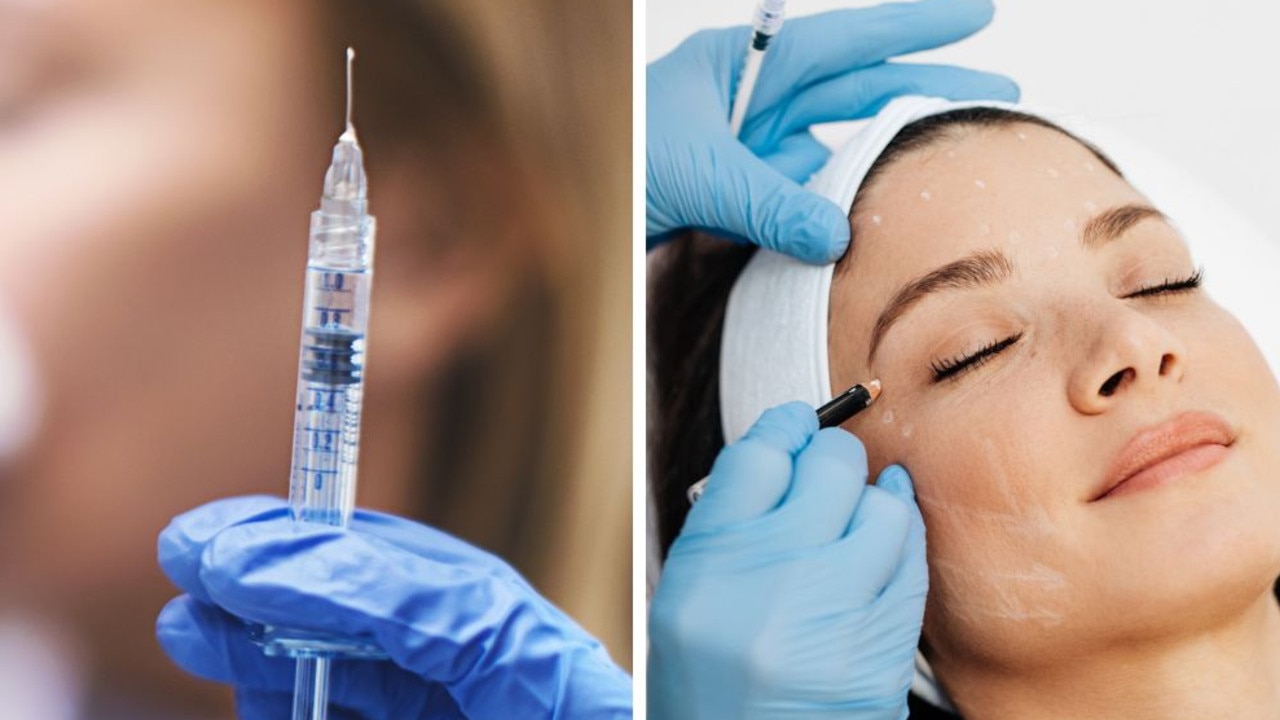Plastic surgeons call for greater care of patients with body image disorders
PEOPLE are going to crazy lengths to look like Justin Bieber or Brad Pitt, but now — finally — some plastic surgeons are refusing to operate.

REID Ewing was so disgusted with his looks that he would sit alone in his apartment, taking pictures of himself from every angle, analysing his features.
The Modern Family actor has body dysmorphia, a version of obsessive compulsive disorder where the sufferer becomes obsessed with their looks or a particular body part.
“It gets to the point where their preoccupation with imagined or minor defects becomes so severe that it interferes with their day-to-day functioning,” said Dr Julie Malone, a Sydney-based clinical psychologist specialising in body image and body dysmorphic disorders. She says up to 4 per cent of Australians suffer from these conditions.
“Sufferers become isolated, withdrawn and avoid seeing people. They check themselves in the mirror repeatedly. They try to camouflage the body part they don’t like with a hat, wearing their hair over their face or baggy clothing. They say ‘I’m not going to go out of my house. No one can see me like this, I’m so ugly’.”

That’s exactly how Ewing viewed himself. “I thought, ‘No one is allowed to be this ugly’,” he wrote in a Huffington Post piece explaining his debilitating condition.
Like many body dysmorphia sufferers, Ewing had several plastic surgery procedures to alter his looks.
“In 2008, when I was 19 years old, I made my first appointment to meet with a cosmetic surgeon. I genuinely believed if I had one procedure I would suddenly look like Brad Pitt,” he wrote.
“I told the doctor why I felt my face needed cosmetic surgery and told him I was an actor. He agreed that for my career it would be necessary to get cosmetic surgery.”
He got cheek implants and later a chin implant from a different surgeon, which had to be corrected with a follow-up procedure.
Over the next few years he had several other surgeries with two other doctors. “Each procedure would cause a new problem that I would have to fix with another procedure,” he said.

Ewing’s surgeons should never have operated on him, says plastic and reconstructive surgeon Dr Rohit Kumar, who runs the Sydney Cosmetic Sanctuary and a member of the Australian Society of Plastic Surgeons.
“A good surgeon is one who knows when to say ‘no’ and doesn’t perform the surgery despite the patient’s requests,” he told news.com.au. “You have to know your limits and you have to know what can be done safely.”
This year we’ve seen several young people undergo multiple extreme surgical procedures in an attempt to look like celebrities.
California man Toby Sheldon spent more than $100,000 on surgery to make him look like Justin Bieber. The 35-year-old “plastic surgery junkie” died in August after going missing following a breakup.
Celso Santebañes, known as the “human Ken doll”, became a star in his native Brazil after undergoing an estimated $60,000 in plastic surgeries. He died in June at age 20.
The regulations in Australia are much more stringent, although the NSW government is reviewing the regulation of the state’s cosmetic industry.
Australian plastic surgeons are taught to ask their potential patients for a full physical and mental history before going under the knife. “They’re trained to pick up on the warning signs,” Australian Society of Plastic Surgeons president Hugh Bartholomeusz said.

The biggest warning signs are a fixation on a particular celebrity’s body part, wanting surgery to advance their career, or obsessing over details down to the millimetre.
Dr Kumar says most of the body dysmorphia sufferers he’s treated fixate on their nose, ears or stomach.
“They think their nose is too large, too wide, too whatever. They will have decided that there is someone’s nose that they think is the ideal nose and they’ll bring in a bunch of photos of a them saying, ‘I want this nose’. That nose may not be at all appropriate for their face shape.”
A fixation on a particular body part is often the result of childhood trauma.
“Some patients were teased quite badly at school and unfortunately it has stuck with them. Their ears may be fine as an adult, but the experience has scarred them enough that they’re obsessed with their ears,” he said.
“I’ve had a few swimsuit models who are absolutely obsessed with the fat around their tummy. Actors in particular get obsessed because it’s a competitive, looks-based industry.
“They have a small amount of excess fat or skin and request a tummy tuck or liposuction, but there is really no need for that. They have a body within the normal weight range but are obsessed with that little bit of fat.”

These minute obsessions cannot be resolved through surgery, says Dr Malone.
“We call them surgery shoppers,” she said. “They get the nose done, then the lips, the eyes, the breasts, the butt, everything.
“It’s a form of delusional disorder. No matter what you do under the knife, you need to address the psychological disturbance.”
Dr Kumar says it’s up to surgeons to take responsibility and refer patients to a psychologist before they perform any procedures.
Reid Ewing wishes his doctors had offered him psychological help.
“Of the four doctors who worked on me, not one had mental health screenings in place for their patients, except for asking if I had a history of depression, which I said I did, and that was that,” he wrote.
“My history with eating disorders and the cases of obsessive compulsive disorder in my family never came up. None of the doctors suggested I consult a psychologist for what was clearly a psychological issue rather than a cosmetic one or warn me about the potential for addiction.
“I wish I could go back and undo all the surgeries. Now I can see that I was fine to begin with and didn’t need the surgeries after all.”



